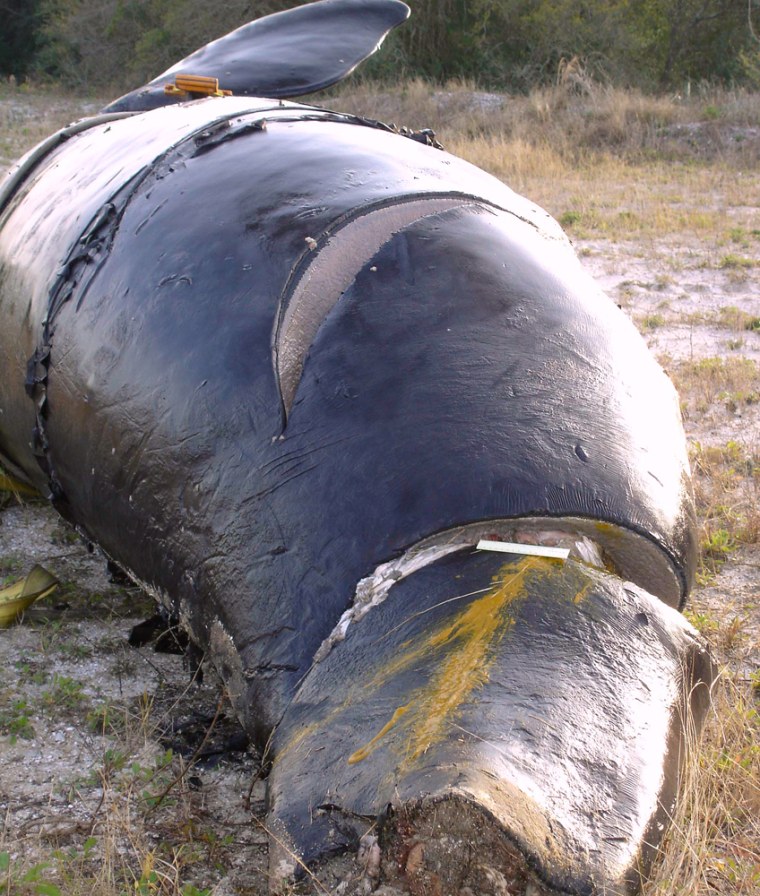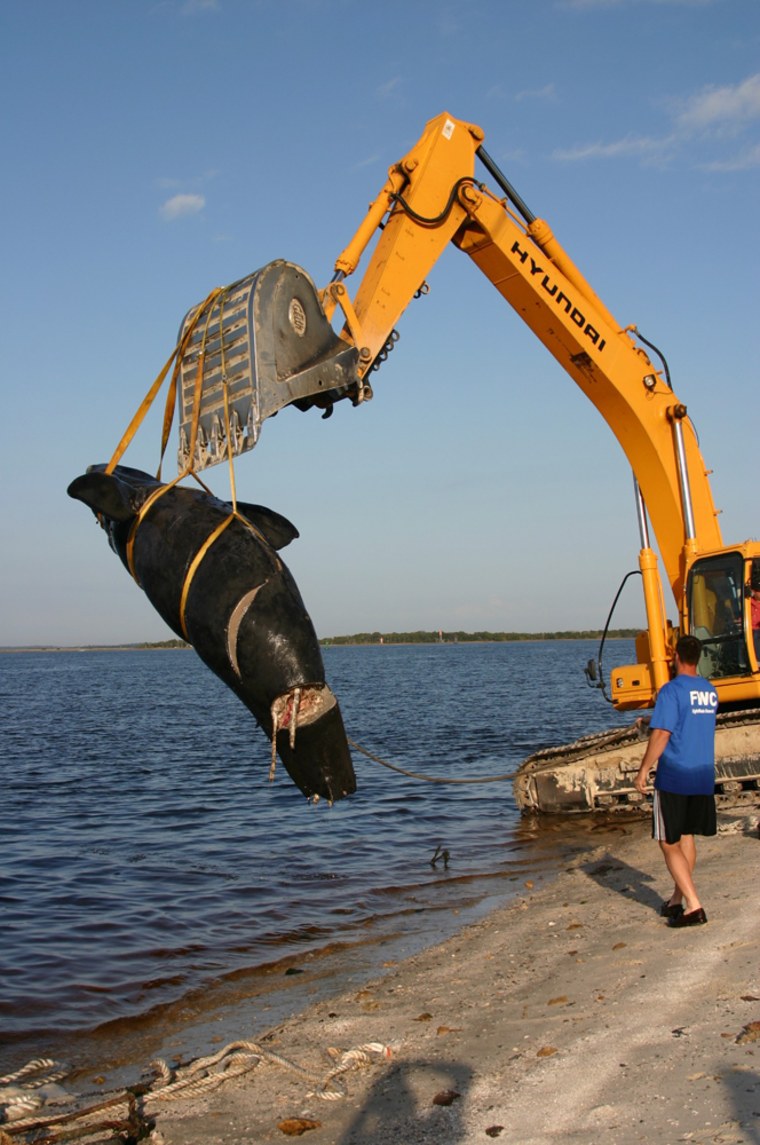Responding to a petition by an activist group, the U.S. Coast Guard has said it cannot establish ship speed limits around a birthing area for right whales off the Florida coast.
The petition by Public Employees for Environmental Responsibility earlier this month came as the severed corpse of a month-old right whale calf was found floating near the coastline.
In a letter, the Coast Guard disagreed with the group that it has authorization to set speed limits. It also stated that it would be “neither practical nor productive” to intervene because the National Oceanic and Air Administration is already studying regulatory action.
North Atlantic right whales are listed as critically endangered, and only 300 are thought to be left after whaling 100 years ago nearly wiped them out. Non-natural deaths now are due to ship strikes and entanglement in fishing gear.
Federal officials said the calf found off Florida appeared to have been hit by a ship. “There are large propeller marks and associated areas that appear to be bruised, strongly suggesting the animal died from a vessel collision,” the National Marine Fisheries Service said in a statement.
“This is the critical moment for the Coast Guard to act,” Kyla Bennett, a former federal biologist and head of PEER’s New England office, said in a statement issued with its petition. “If this generation of calves is decimated by ship collisions, the species is unquestionably doomed.”
Female fatalities in last year
In the statement, PEER noted that “in the past year, five percent of the total female breeding population has been killed, as well as two near term calves.”
Florida is particularly important for the whales because newborn calves spend winters there.
PEER claims that NOAA has stalled implementing its own proposed rules that would reduce ship speeds and reroute some vessels to minimize traffic in sensitive calving and migratory areas.
The fisheries service, part of NOAA, said Thursday it “plans to release a proposed rule for a ship strike strategy in the near future.”
Slow speed limit sought
PEER had asked the Coast Guard to impose a 12-knot speed limit in the area off Jacksonville, Fla., while the whales are concentrated there.

Last June, the Coast Guard cited national security concerns in refusing NOAA’s request for an advisory urging ship captains to reduce speeds to 12 knots in that area and others where right whales have been sighted. A knot is equivalent to 1.15 miles.
The strategy now, PEER said, was to invoke the Coast Guard’s legal authority to create a “safety zone, security zone, or regulated navigation area” for “environmental purposes.”
“The right whale needs immediate help to survive, and the Coast Guard can be the species’ savior,” Bennett said. “Taxpayers spend millions each year to monitor right whales and respond to entanglements and other emergencies; all that money, time and effort, as well as this species, may soon be gone if the Coast Guard sits on its hands.”
